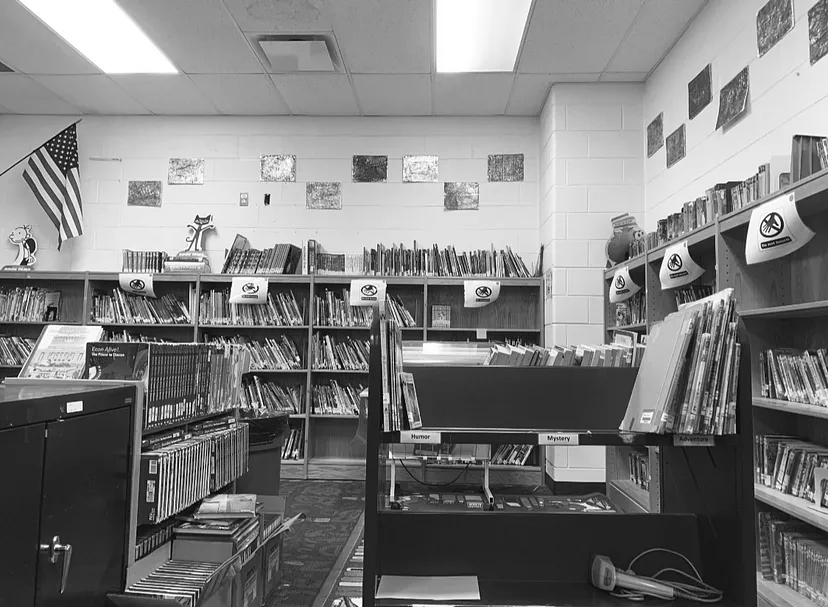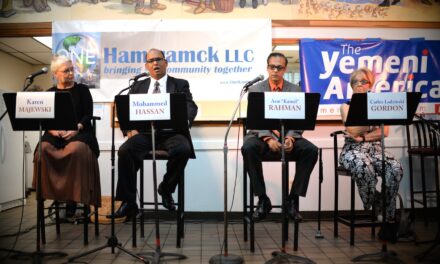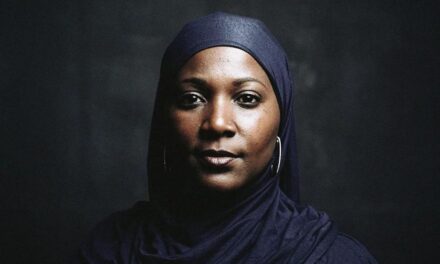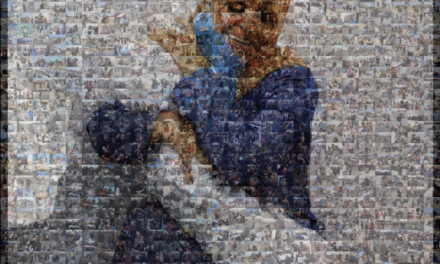For the longest time, I thought that I would never be able to work with kids.
There was something about the way that their personalities beamed that I felt like I didn’t have the space for.
My awkwardness, fear of failure, impatience with myself, and inability to be fully present rendered me feeling a bit hopeless. I contemplated why I felt this way — what happened to me in life, or what exactly did I do to myself — that the most beautiful thing— the most beautiful joy — felt impossible to hold?
When I accepted a job as a K-12 Librarian, I was in for quite an experience.
This is the story of how something that I secretly hated turned into something that I deeply loved — a story of being and becoming.
With Hardship Comes Ease: Patience and Gratitude
Whenever I deal with extreme hardship, I usually try to keep it to myself. If anything, I keep it at home to prevent the possibility of negatively impacting a stranger, or in this situation, a child.
When I first started my job as a librarian, I was expecting to spend most of my day in the library, where students and their teachers would visit the space and check out books.
A calm, cool, collective environment with minimal stimuli entering my mind and body.
What I received was something completely different: something that would challenge me, my ego, and my capacity, in every direction.
There I was, in a small space inside of a social studies classroom, where between my space and the classroom was a room divider. This meant that my space would be loud for over half of the day, and that I would be visiting students in their classrooms; they would not be coming to me.
Pro: I could travel to classrooms on my own time and run the show upon arrival. Con: I needed to push a cart of books to each classroom, watch the clock like a hawk, and make it back in time for hallway supervision.
On the job, I was assigned to visit 17 classrooms per week. This meant working with roughly 400+ students on a weekly basis. Imagine the amount of books, the printed activities, and the names to remember. With God’s grace, I collaborated with my 14 teachers to honor my capacity each week (because let’s be honest, 17 is way too much for anyone).
The front-facing nature of the job, coupled with the additional tasks than just circulating books, caused me major anxiety every single day. As someone who has battled social anxiety and was completely new to working with kids, I felt completely overwhelmed.
With God’s blessings, I would get sick once every few weeks with a respiratory illness. This made my work more difficult, but it allowed me to take a day or two off each time to catch my footing.
Needless to say, it took me a couple of months to adjust to the job. Through this time, I learned to uphold two qualities each day: patience and gratitude. In the weeks that followed, the tiny voice in my head telling me, “Don’t quit.” started to pay off.
It all came around when I endured the various projects of March is Reading Month: daily classroom activities, the school Spelling Bee, the Semester II Book Fair.
I think that March was the month that the kids and I really fell for each other.
The Work: Mere Presence
When a kid talks to me, what do I say? When a kid comes to me crying, how do I handle it? When two kids have an issue, what do I do?
Before I started working with kids, I had these questions. After I started working with kids, these questions amplified.
Whether I was knee deep with them in classrooms, in the library giving a quick tour, conducting supervision in the cafeteria, or spending my lunch time on the playground, I would be put in these situations.
These circumstances were not easy to handle, but I noticed a consistency in what the kids desired — no matter the age, no matter the situation.
I found that the key was to simply be present. The kids do most of the work.
Perhaps, a third grader wants to tell you about what he’s currently learning in class, or he wants to tell you about his favorite new drink. Sometimes, all this requires is a smile, and a question like, “Are you excited?” or the exclamation, “Tell me more!”
Maybe a fifth grader’s stomach hurts, and she wants some help. Sometimes, an offering is all that she needs: “I hope you feel better. Do you want to go to the office to call home?”
Maybe two students got into an argument; and you need to hear them out and encourage them to resolve it among themselves. Sometimes, all this requires is kneeling in front of both students and saying, “How are friends supposed to treat each other? With kindness, right? Please apologize to your friend.”
I often found that I didn’t really do any work. I just listened. I cared. And, I showed it.
The Art of Non-Attachment
When you work with kids, you can’t help but feel strongly for them.
In a way, their emotions become your emotions. Their problems become your problems. Their successes become your successes.
Certain kids may gravitate towards you or get attached to you, but you have to make sure that proper boundaries are upheld.
During my work experience, I had students who would visit the library multiple times per week to exchange books. Students who would open up to me, wanting advice on their life problems. Students who would hug me every time they saw me.
As a woman, and especially as a 24-year-old on the job, I felt like a goofy equal / student, a caring mother, a reliable sister, and a professional teacher / librarian — all in one.
Despite, and because of, the identities that I felt like I carried, I had to learn the art of non-attachment. I had to learn how to dip my heart into something without swimming in it for too long.
I had to learn how to hold space without taking up space.
Learning this skill pushed me to transcend my ego, connect deeper with my soul, and remember God, tenfold, during every interaction that I had with a student.
Adulting: Professional Development
It is an interesting thing to work in a school that serves pre-schoolers to high school seniors.
When interacting with middle and high schoolers, I often felt like a regular student myself: like one of them. Even with those younger, I felt invited outside of my regularly-serious personality to be soft, silly, and goofy.
At the same time, though, I witnessed an odd shift in my social standing: I was one of the adults. I was equal to the new 26-year-old Lebanese English teacher who seemed a lot older. I was equal to the middle-aged Black 4th grade teacher who has been teaching for years. I was even equal to the administrators who have been running schools for decades.
Attending restorative practice trainings really made me feel this way. As I was sitting in the crowd of staff members for seminars, engaging in discussions and role-plays with my small group, or being called on to share personal reflections, I thought, “How do I word this?”, “Take your time; take your pauses when speaking, as needed; be patient.”, and “I hope I sound professional and sophisticated…like the adults.”
Luckily, many of my co-workers were women, Arab, and Muslim; so in a way, I sometimes felt like I was in the village. Whatever I said, they would understand.
However, the teacher that had the greatest impact on me was the teacher that I shared my classroom with.
A compassionate and funny teacher who had a passion for family and helping others, especially her students. She was white and came from a Christian background, and often had the best character in how she would strive in service. Snacks, candy, extra academic support provided between classes and after school, menstrual hygiene products for sisters who needed them — in a way, she was a mom to all.
Her support, guidance, patience, and willingness to answer my questions made my job more manageable, insightful, intellectually stimulating, and fun than I could have ever imagined.
Getting to know her was a blessing, but learning from her was one of God’s greatest mercies to me.
Sharing a classroom was perhaps the thing that I didn’t initially want, but it became the thing that I so desperately needed.
“…Perhaps you hate a thing and it is good for you; and perhaps you love a thing and it is bad for you. And Allah Knows, while you know not.” (Qur’an 2:216)
Self-Development, Role Modeling, and Sisterhood
When you are two things: a woman and a Muslim, and you are working with many Muslim girls, the first thoughts that may come to your mind are: “Who am I?”, “Am I good enough?”, and “Will I be a good influence (on them)?”.
As someone with many past wounds rooted in the feminine (via the female figures in my life), I found it very difficult to talk with kids, especially the girls. And I noticed that the older they were, the more anxiety filled my body.
I especially felt very anxious with fourth and fifth graders, hinting that perhaps most of my wounds — either from my upbringing or the effects of my past sins — had started taking place. In retrospect, puberty is typically around this age.
Nonetheless, I was determined to heal and expand. More eye contact, longer conversations. Accepting the compliments about my supposed kindness and beauty, and returning their offerings with more richness.
In the back of my mind, I knew that being warm, gentle, and light-hearted was all that I truly needed to be. I didn’t need to teach them anything, or try to guide them. I just needed to be someone that they could rely on.
The girls that I interacted with, every day, taught me about love and connection. With God’s permission, they opened my heart and purified it, allowing me to express more compassion, presence, and understanding. They also inspired me to take this heart-expansion home with me.
They taught me how to become a better sister — to my own biological sisters first.
The Importance of Training and Education
Graduating with my bachelor’s degree a few months into the role, I did not feel prepared nor ready to be a school administrator.
I initially thought that I would just be a regular support staff member; but in a way, I took on the roles of “admin” and “assistant teacher.”
Overall, it was a very active role filled with hypervigilance and enforcing school rules and policies. I sometimes felt like I couldn’t be the best version of myself.
Watching my co-workers, I felt like I needed to (also) yell at students, to get them to “listen” and to prevent myself from getting into trouble, or seeming incompetent at my job.
Admittedly, I did yell at students a few times, and I didn’t enjoy it at all. This made me think about the type of educator that I wanted to be. I knew that it had to start with getting proper training and education on a personal / spiritual level, and for the role (itself), before being in a place of power and privilege.
In many spiritual traditions, there is much gentleness and respect between the student and the teacher; and I think that this is something that everyone (in education, especially) needs to adopt.
In greater context, Prophet Muhammad (s) tells us that the child is a master for seven years (0–7), a slave for seven years (7–14), and a vizier for seven years (14–21) [source]. We must treat our youth as such, whether they are guiding us; we are guiding them; or we are walking alongside each other in the pursuit of infinite knowledge.
In essence, in education, there must be no room for weak character, especially on the teacher and administrator end.
I am humbly keeping this in mind for future roles.
Heart-Led Service: Starting at Home
I was really young when I learned about the importance of education. My father, now-retired, was a teacher for 27.5 years in the public school system. My elementary school summers looked like reading, writing, and solving math problems, followed by sitting with my dad afterwards to review my work.
As you can imagine, I grew up knowing how to read and write; and math was fairly easy until high school.
Being a librarian led me down a road of deep reflection: of my upbringing, of my father, and the abilities that I have because of God.
Adjusting to my job, especially at a school, was very painful. It felt very tedious and lonely to organize books on an almost-daily basis, to travel from one class to the next with hundreds of personalities in my space, and to learn about the heart-wrenching truth of my students.
That truth? Many students were severely behind in reading and writing; and a large percentage of those students could barely read at all. My heart broke in the elementary classrooms, and even more in the middle school English classes.
During one of the class activities, students worked on a MLK Day assignment where they had to write one dream — one thing that they hope for — on a piece of paper.
In a sixth grade classroom, I heard the voice of a boy named Abdou. He needed help understanding the assignment and writing his dream. Sitting at his desk at the back of the room, I approached him.
“What’s one thing that you want to do, when you grow up?”
“Make money!”
“That’s good! Do you want a good job, too?”
“Yes,” he replied.
So, I took out the pen in my pocket; and we wrote, “I want a good job and to make money.”
This interaction with Abdou will always hold a special place in my heart. Not only because he did not know how to spell simple words, but because his aspirations were simple, and ultimately, life-changing — for him and his family.
Despite the struggle that dawned on me when confronted with the truth, my “job” began to feel differently, when I shifted my mentality.
Contextualizing my job as a community service opportunity, and removing the white-savior complex from my own ego, made my experience more pleasurable and God-conscious.
I did not need to question whether my “job” was making an impact, or if I was using my time wisely in my supposed profession. Quite simply, I was there to serve.
I was not looking to save or even change lives. I was merely looking to help students read and write, spread joy in their lives on a daily basis, and be a loving, positive person that they could rely on during our time together.
I became even more conscious of the fact that I did not need to travel the world to improve literacy skills among youth. I could do it right in my backyard — in this case, in a Detroit charter school.
Envisioning My Future Self, Aspirations, and Next Steps
Thinking about my experience — even from the very beginning, I knew, in my heart, that being a school librarian was basically everything that I was looking for (and then some).
I was working with 1). Detroit youth and 2). Muslims, who felt like home and challenged me to become a positive role model (especially to young girls).
I was spending half of my working day in classrooms, facilitating activities and spreading joy, and the other half in the comfort of my mini library, organizing books and preparing next day’s pursuits.
I was working directly with staff and administration to improve the literacy and education of local students. I didn’t have to travel across the world to make an impact, or teach kids how to read or write.
As I think about the next steps of my life, I have a fresh perspective on what it means to serve; on education and developing the soul; on presence and sisterhood; on the nurturing, Islamic environment that I aspire to be in; and on the beliefs and expectations that I have of myself.
My kids have not only taught me how to love, but they have taught me how to love myself. Because of them, I will carry this self-love forward — in where I want to be, and in who I want to become.

I am just a visitor in service. All good is from God. All shortcomings are from me. Thank you for being here.














